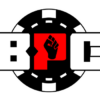This is part two in a series for Developing Your Poker Mindset. In part one, I explained why you need to be completely focused at the poker table. It’s an obvious request but how often can you say that your focus is always 100% on the action? Bottom line: if your attention is elsewhere, you’re costing yourself money.
Now with that said, you can have all the focus in the world but it won’t mean a damn thing if you can’t control your emotions at the table. However, humans are emotional by nature – it’s in our DNA. This means that everyone, from complete beginners to successful pros, are prone to tilt. Just do a quick search on YouTube for Phil Hellmuth and you’ll easily find plenty of examples of emotional outbursts. And while I believe that some of his tirades are enhanced for the cameras, it’s still a perfect illustration of what not to do at the poker table.
To keep your emotions in check, you first need to understand when and why you tilt. If you know the warning signs and have the self-awareness to recognize them, you can eventually avoid tilt altogether. Of course, you need to have the discipline to follow through on your intuitions, which I’ll discuss further in part three of this series.
At any rate, the reasons and varying degrees of tilt are different for everyone but strong negative feelings are generally going to outweigh any positive ones. For example, when we’re winning, we’re happy and our confidence is high, regardless of how well we’re actually playing. But when we’re losing, especially if we believe that we’re playing well, many of us let our emotions take over which leads to poor decision-making.
When this happens, one thing leads to another, and each bad decision creates a domino effect that can crush your bankroll, or at the very least, put you into an endless cycle of up and down results. If you’re the type of player who only plays solid when things are going well, all you’ll be is a hamster in a wheel. If your cash graph looks like a roller coaster, then YOU are a hamster.
Now obviously, luck is a huge factor in poker – in the short term. The luck element is what brings bad players back to the table, however, which makes poker profitable in the long run for emotionally balanced players. You can play perfect and still lose, that’s a fact, and you need to brace yourself for it, as negative variance in poker can go on for long stretches. To counter this, you need to play more hands to get to the “long run” faster and do so with optimal, machine-like decision making. Understand what makes you tilt, then rewire your brain to overcome and eventually eliminate the emotional factors.
I used to tilt – a lot. I was a graph checker, so naturally, my short-term results were guiding my decisions. It didn’t matter if I was playing NL2 or NL200, I would routinely check Holdem Manager with every sizable pot won or lost. I used to not think through my decisions. I used to berate fish in the chat box. Basically, I used to do a lot of stupid shit but it all originated from my habitual in-game graph checking and bankroll refreshing. When I finally got it through my thick skull that this was a huge problem, I decided to do something about it.
The first thing I did was force myself to think long-term by hiding all monetary stats from HEM reports. I could still see marked hands and anything I filtered for but that’s it. I also made a rule that if I did check my results, I was done for the day and had to donate $50 to charity, no exceptions. I checked one time (LOL) and that was the end of that. Then I made another rule to check every 10k hands and eventually just once per week. I reviewed individual hands along the way, but this also led to a database analysis at the end of each week as well. So not only did this simple adjustment stop the graph checking, it also introduced a regular system for detailed study.
Now that’s not to say all my tilt issues were gone, I still had to continuously work at it like any other strategy. If you have even the slightest tilt issues, I suggest you do the same by implementing mindset training into your study routine. There are plenty of books and other resources out there, and here at BPC, we even have our own Outstanding Mind Academy as well as individual courses such as Tilt Free Today and The Poker Millionaire Mindset available with the BPC Club membership.
I also highly recommend the two videos below. It’s a two-part series called Mastering the Mental Game by Jared Tendler. Disregard the fact that most mental game coaches are often considered snake oil salesmen, because after all, this 2-hour series is free. So watch with an open mind, take notes, and apply to your game. Good luck!



